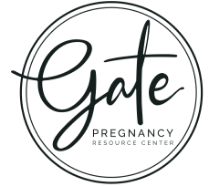What is the Difference Between Chemical Abortion and Surgical Abortion?
Depending on how far along you are and your state laws, you will have either a chemical abortion or a surgical abortion. A chemical abortion, or abortion pill, consists of taking two sets of pills that terminate a pregnancy. The first pill, mifepristone, is a progesterone blocker. It blocks progesterone, the main hormone your body makes to grow the baby and the placenta. Within 72 hours, the baby dies from a lack of nutrients. The second set of pills is designed to end the pregnancy, induce labor, so you deliver the fetus at home. You should have someone with you if you take the abortion pills to monitor your bleeding, as there is a risk of post-partum hemorrhaging, or excessive bleeding. If you soak more than two pads in one hour, you should seek emergency medical attention right away. You should also follow up with an OB/GYN to make sure the lining of your uterus and all “products of conception” have been eliminated from the body. Otherwise, you are at risk for uterine infection, which can lead to sepsis (infection of the blood) and death.
Before taking the abortion pills, you need to get an ultrasound. This will give you three things:
- Is the pregnancy in the uterus? The abortion pills do not work for ectopic pregnancies.
- How far along is the pregnancy? The abortion pill doesn’t work after 10 weeks of gestation.
- Is there a heartbeat? Statistically, 1 in 4 pregnancies end in miscarriage. The heartbeat will prove the viability of the pregnancy.
A surgical abortion is a medical procedure where local numbing medication is normally used. The cervix is dilated (just as you would for normal delivery) and a vacuum is inserted through the cervix to suck out the parts of the baby. You should also have someone with you to monitor your bleeding for this procedure as well. There is a risk of post-partum hemorrhaging as well as uterine rupture (caused by a puncture to the lining of the uterus from the vacuum). It is recommended that someone monitor you up to 10 days after a surgical abortion. You need to follow up with an OB/GYN to make sure no infection from the procedure has developed.
There is emotional trauma that comes with either of these abortions. There is loss, natural grief, and a high risk of anxiety and depression. If you have issues with anxiety and depression before having an abortion, these feelings can be greatly increased. You may need to seek out professional counseling after an abortion.
More Information & Support
For more information on abortion, or for post-abortion support, please contact Gate Pregnancy Resource Center. We offer free pregnancy tests and ultrasounds, as well as hundreds of free resources available to you, including housing, finances, clothing, baby supplies, etc.
Call us today at (704)455-5200 or visit our website at www.gateprc.org. Click below to schedule an appointment with us today.

